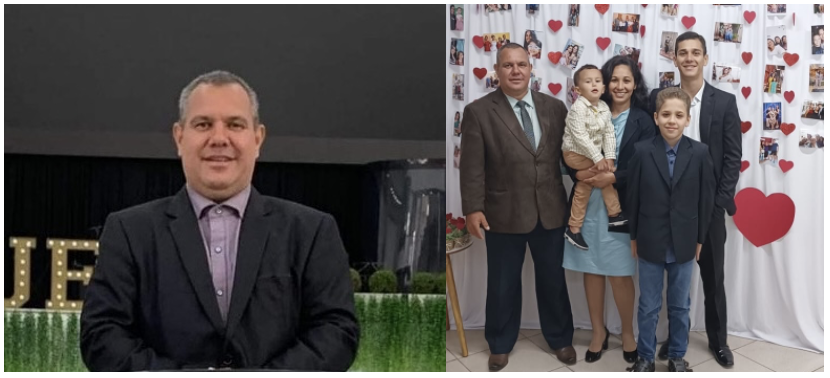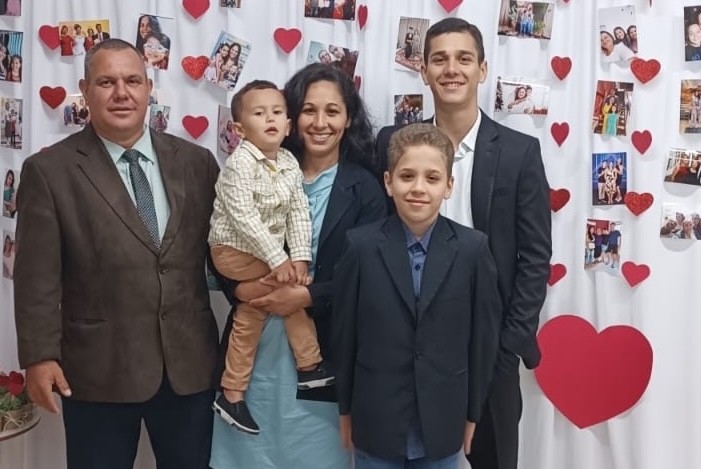
SHORTLY after 6 pm on Monday 13 February 2023, Eliel da Silva was walking home from the hospital where he works as a nursing technician but where on this occasion he had gone to resolve a personal matter. It was a warm, muggy evening, typical of the late summer weather in São Carlos where Eliel lives with his wife Jeane and their three children – 19-year-old Gabriel, 13-year-old João Pedro and three-year-old Kaleb.
Eliel followed his older siblings into nursing, and he has no regrets. His first job after qualifying as a technical nurse at Escola Ateneu, was at Santa Casa de São Carlos where he started on 1 June 1994. When he joined “the best team in the world” at UNIMED São Carlos 14 years ago, he had no idea that his co-workers would some day save his life.
Eliel had been walking for about 3 km when suddenly his vision darkened, his head throbbed with pain, and he felt a tingling sensation in his left arm and leg. Aware that he was having a heart attack or a stroke, he managed to ask a passerby to call UNIMED Hospital. Then he collapsed onto the sidewalk, no longer able to speak or move his arms and legs.
Of the ride in the ambulance that had been summoned by someone in the small crowd gathering around him, Eliel remembers very little. But he does remember arriving at the hospital where his co-workers were waiting outside the emergency entrance with a stretcher. And he remembers the doctor tapping his chest and saying, “I’ll take care of you.”
WHAT Eliel loves about nursing is “seeing someone with health problems enter the hospital and then seeing them leave well and recovered”. In the course of his career he has seen many stroke patients arrive at the hospital, and he has cared for stroke survivors at home.
A keen runner and soccer player in his spare time, he never expected to be that patient. But now, with the clock ticking away, Eliel was wheeled directly to radiology where a CT scan confirmed he had had a stroke. A therapeutic decision was swiftly reached. Treatment with thrombolysis commenced at CT and continued in the emergency room. From there he would be transferred to the ICU where he would spend the next three days.
The shift in perspective from being the carer to being cared for, brought home a number of truths. The first of these was the importance of prenotification to shorten the treatment path. Because the mobile emergency care service (SAMU) had alerted the hospital that a suspected stroke patient was on his way, UNIMED Hospital’s stroke team was ready to receive their colleague and expedite his pathway. The second was the significance of strict adherence to protocol. UNIMED São Carlos is a diamond hospital – a three-times winner of the top-tier WSO Angels Award. Their compliance with evidence-based guidelines means patients like Eliel receive the highest standard of care in the shortest possible time.
The third observation was how post-acute care supports recovery. Eliel says, “All the care from the entire multidisciplinary team was wonderful. The physiotherapy team helped me walk every day. The first few days I couldn't walk, but then I was gradually able to walk again.”
When Eliel went home eight days after his stroke, his movements were still tentative, and his mouth still drooped to one side. For the sequelae to recede would take time. Ten months later, however, he is almost ready to return to work.
“I feel very good,” he says. “There are a couple of fingers that from time to time still don’t hear the voice of the brain, but I am very well, thank God.”


